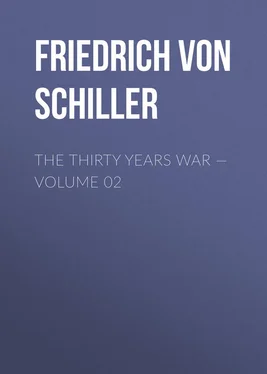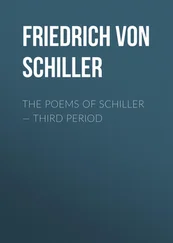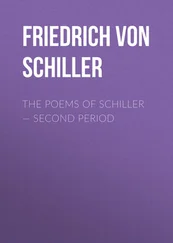Friedrich Schiller - The Thirty Years War — Volume 02
Здесь есть возможность читать онлайн «Friedrich Schiller - The Thirty Years War — Volume 02» — ознакомительный отрывок электронной книги совершенно бесплатно, а после прочтения отрывка купить полную версию. В некоторых случаях можно слушать аудио, скачать через торрент в формате fb2 и присутствует краткое содержание. Жанр: История, literature_18, foreign_antique, foreign_prose, на английском языке. Описание произведения, (предисловие) а так же отзывы посетителей доступны на портале библиотеки ЛибКат.
- Название:The Thirty Years War — Volume 02
- Автор:
- Жанр:
- Год:неизвестен
- ISBN:нет данных
- Рейтинг книги:3 / 5. Голосов: 1
-
Избранное:Добавить в избранное
- Отзывы:
-
Ваша оценка:
- 60
- 1
- 2
- 3
- 4
- 5
The Thirty Years War — Volume 02: краткое содержание, описание и аннотация
Предлагаем к чтению аннотацию, описание, краткое содержание или предисловие (зависит от того, что написал сам автор книги «The Thirty Years War — Volume 02»). Если вы не нашли необходимую информацию о книге — напишите в комментариях, мы постараемся отыскать её.
The Thirty Years War — Volume 02 — читать онлайн ознакомительный отрывок
Ниже представлен текст книги, разбитый по страницам. Система сохранения места последней прочитанной страницы, позволяет с удобством читать онлайн бесплатно книгу «The Thirty Years War — Volume 02», без необходимости каждый раз заново искать на чём Вы остановились. Поставьте закладку, и сможете в любой момент перейти на страницу, на которой закончили чтение.
Интервал:
Закладка:
The domestic disturbances which his misgovernment had gradually excited burst forth under his unfortunate son, and forced him, after some unimportant attempts, to renounce all further participation in the German war, in order to stem within his own kingdom the rage of faction. Two illustrious monarchs, far unequal in personal reputation, but equal in power and desire of fame, made the North at this time to be respected. Under the long and active reign of Christian IV., Denmark had risen into importance. The personal qualifications of this prince, an excellent navy, a formidable army, well-ordered finances, and prudent alliances, had combined to give her prosperity at home and influence abroad. Gustavus Vasa had rescued Sweden from vassalage, reformed it by wise laws, and had introduced, for the first time, this newly-organized state into the field of European politics. What this great prince had merely sketched in rude outline, was filled up by Gustavus Adolphus, his still greater grandson.
These two kingdoms, once unnaturally united and enfeebled by their union, had been violently separated at the time of the Reformation, and this separation was the epoch of their prosperity. Injurious as this compulsory union had proved to both kingdoms, equally necessary to each apart were neighbourly friendship and harmony. On both the evangelical church leaned; both had the same seas to protect; a common interest ought to unite them against the same enemy. But the hatred which had dissolved the union of these monarchies continued long after their separation to divide the two nations. The Danish kings could not abandon their pretensions to the Swedish crown, nor the Swedes banish the remembrance of Danish oppression. The contiguous boundaries of the two kingdoms constantly furnished materials for international quarrels, while the watchful jealousy of both kings, and the unavoidable collision of their commercial interests in the North Seas, were inexhaustible sources of dispute.
Among the means of which Gustavus Vasa, the founder of the Swedish monarchy, availed himself to strengthen his new edifice, the Reformation had been one of the principal. A fundamental law of the kingdom excluded the adherents of popery from all offices of the state, and prohibited every future sovereign of Sweden from altering the religious constitution of the kingdom. But the second son and second successor of Gustavus had relapsed into popery, and his son Sigismund, also king of Poland, had been guilty of measures which menaced both the constitution and the established church. Headed by Charles, Duke of Sudermania, the third son of Gustavus, the Estates made a courageous resistance, which terminated, at last, in an open civil war between the uncle and nephew, and between the King and the people. Duke Charles, administrator of the kingdom during the absence of the king, had availed himself of Sigismund's long residence in Poland, and the just displeasure of the states, to ingratiate himself with the nation, and gradually to prepare his way to the throne. His views were not a little forwarded by Sigismund's imprudence. A general Diet ventured to abolish, in favour of the Protector, the rule of primogeniture which Gustavus had established in the succession, and placed the Duke of Sudermania on the throne, from which Sigismund, with his whole posterity, were solemnly excluded. The son of the new king (who reigned under the name of Charles IX.) was Gustavus Adolphus, whom, as the son of a usurper, the adherents of Sigismund refused to recognize. But if the obligations between monarchy and subjects are reciprocal, and states are not to be transmitted, like a lifeless heirloom, from hand to hand, a nation acting with unanimity must have the power of renouncing their allegiance to a sovereign who has violated his obligations to them, and of filling his place by a worthier object.
Gustavus Adolphus had not completed his seventeenth year, when the Swedish throne became vacant by the death of his father. But the early maturity of his genius enabled the Estates to abridge in his favour the legal period of minority. With a glorious conquest over himself he commenced a reign which was to have victory for its constant attendant, a career which was to begin and end in success. The young Countess of Brahe, the daughter of a subject, had gained his early affections, and he had resolved to share with her the Swedish throne. But, constrained by time and circumstances, he made his attachment yield to the higher duties of a king, and heroism again took exclusive possession of a heart which was not destined by nature to confine itself within the limits of quiet domestic happiness.
Christian IV. of Denmark, who had ascended the throne before the birth of Gustavus, in an inroad upon Sweden, had gained some considerable advantages over the father of that hero. Gustavus Adolphus hastened to put an end to this destructive war, and by prudent sacrifices obtained a peace, in order to turn his arms against the Czar of Muscovy. The questionable fame of a conqueror never tempted him to spend the blood of his subjects in unjust wars; but he never shrunk from a just one. His arms were successful against Russia, and Sweden was augmented by several important provinces on the east.
In the meantime, Sigismund of Poland retained against the son the same sentiments of hostility which the father had provoked, and left no artifice untried to shake the allegiance of his subjects, to cool the ardour of his friends, and to embitter his enemies. Neither the great qualities of his rival, nor the repeated proofs of devotion which Sweden gave to her loved monarch, could extinguish in this infatuated prince the foolish hope of regaining his lost throne. All Gustavus's overtures were haughtily rejected. Unwillingly was this really peaceful king involved in a tedious war with Poland, in which the whole of Livonia and Polish Prussia were successively conquered. Though constantly victorious, Gustavus Adolphus was always the first to hold out the hand of peace.
This contest between Sweden and Poland falls somewhere about the beginning of the Thirty Years' War in Germany, with which it is in some measure connected. It was enough that Sigismund, himself a Roman Catholic, was disputing the Swedish crown with a Protestant prince, to assure him the active support of Spain and Austria; while a double relationship to the Emperor gave him a still stronger claim to his protection. It was his reliance on this powerful assistance that chiefly encouraged the King of Poland to continue the war, which had hitherto turned out so unfavourably for him, and the courts of Madrid and Vienna failed not to encourage him by high-sounding promises. While Sigismund lost one place after another in Livonia, Courland, and Prussia, he saw his ally in Germany advancing from conquest after conquest to unlimited power. No wonder then if his aversion to peace kept pace with his losses. The vehemence with which he nourished his chimerical hopes blinded him to the artful policy of his confederates, who at his expense were keeping the Swedish hero employed, in order to overturn, without opposition, the liberties of Germany, and then to seize on the exhausted North as an easy conquest. One circumstance which had not been calculated on — the magnanimity of Gustavus — overthrew this deceitful policy. An eight years' war in Poland, so far from exhausting the power of Sweden, had only served to mature the military genius of Gustavus, to inure the Swedish army to warfare, and insensibly to perfect that system of tactics by which they were afterwards to perform such wonders in Germany.
After this necessary digression on the existing circumstances of Europe,
I now resume the thread of my history.
Ferdinand had regained his dominions, but had not indemnified himself for the expenses of recovering them. A sum of forty millions of florins, which the confiscations in Bohemia and Moravia had produced, would have sufficed to reimburse both himself and his allies; but the Jesuits and his favourites soon squandered this sum, large as it was. Maximilian, Duke of Bavaria, to whose victorious arm, principally, the Emperor owed the recovery of his dominions; who, in the service of religion and the Emperor, had sacrificed his near relation, had the strongest claims on his gratitude; and moreover, in a treaty which, before the war, the duke had concluded with the Emperor, he had expressly stipulated for the reimbursement of all expenses. Ferdinand felt the full weight of the obligation imposed upon him by this treaty and by these services, but he was not disposed to discharge it at his own cost. His purpose was to bestow a brilliant reward upon the duke, but without detriment to himself. How could this be done better than at the expense of the unfortunate prince who, by his revolt, had given the Emperor a right to punish him, and whose offences might be painted in colours strong enough to justify the most violent measures under the appearance of law. That, then, Maximilian may be rewarded, Frederick must be further persecuted and totally ruined; and to defray the expenses of the old war, a new one must be commenced.
Читать дальшеИнтервал:
Закладка:
Похожие книги на «The Thirty Years War — Volume 02»
Представляем Вашему вниманию похожие книги на «The Thirty Years War — Volume 02» списком для выбора. Мы отобрали схожую по названию и смыслу литературу в надежде предоставить читателям больше вариантов отыскать новые, интересные, ещё непрочитанные произведения.
Обсуждение, отзывы о книге «The Thirty Years War — Volume 02» и просто собственные мнения читателей. Оставьте ваши комментарии, напишите, что Вы думаете о произведении, его смысле или главных героях. Укажите что конкретно понравилось, а что нет, и почему Вы так считаете.











